 Read Only Memories: Neurodriver GBAtemp review
Read Only Memories: Neurodriver GBAtemp review
PlayStation 5
Product Information:
- Release Date (NA): May 16, 2024
- Release Date (EU): May 16, 2024
- Publisher: Chorus Worldwide
- Developer: MidBoss
- Genres: Adventure
- Also For: Computer, Nintendo Switch, PlayStation 4, Xbox One, Xbox Series X|S
Game Features:
Point-and-click, as a genre, has had somewhat of a resurgence in recent years with more people appreciating the genre as a juxtaposition to killing, racing, or kicking virtually the same football year after year.
Read Only Memories: Neurodiver takes cues from visual novels, Manga & Anime, and blends them with a 16-bit cyberpunk aesthetic to deliver a tale of intrigue and technological wonder, and it serves as a sequel to 2015's 2064: Read Only Memories.
Cyber Sleuthing in Neo San Francisco
Without giving too much away, Neurodiver's main gimmick is that of chatting, developing the current objectives, diving into a subject with the Neurodiver and then looking for clues or solving fragmented memories.
For the most part, you're steered through the general story by ES88 or Luna Cruz de la Vega, who has personality in spades, but an annoyingly cliched penchant to look one way and talk out the opposite side of her mouth under her breath. I found this trait entirely cringe, but getting past that you find a decent character at heart that drives the story forward at a reasonable pace.
Essentially you are an Esper, a psychic, who has a pet squid that can help you tap into people's memories. The squid, or rather the Neurodiver, "BLORP"s at every possibility and is used as a tool to progress your character's investigative career into stardom. Your first case, a tutorial mission of sorts, sees you meeting up with a group of bird-themed mercenaries in the mind of a soldier, aptly named Crow, who has been genetically hybridised into half man half beast, or rather cat, but most surprisingly: not half bird.
Exploring the memories means exploring the area in the client's memories and looking for pieces of tangible information that may be used as a clue. Within these scenes are fragmented memories that take the shape of monsters, children and objects that are the polar opposite of what you would expect from the person whose memories you are exploring.
Some clues are obvious, some a little more oblique, but it pays to scan the entire area for clues as sometimes it's easy to miss things because they are obscured. Background details such as musical paraphernalia, books, dart boards, and notices on boards can hold crucial information down the line.
In the case of Crow, you are simply flexing your muscles and testing the waters, readying yourself for bigger and better cyber sleuthing tasks, and as such you discover certain details that can pull even the most innocuous character into question. Morally you have to choose your line of questioning and methods to suit your playstyle, but it is always important to thoroughly read and understand even the most minute of details in conversations and the backgrounds as these things may be important going forward.
A Varied Cast of Colourful Characters
Following this initial trial run on Crow, you set to work at the Minerva campus with Gate, your cyborg chaperone that ES88 likes, a lot. You are tasked with meeting several people within this area to solve increasingly important 'lost' memories and gather a broader understanding of what is afoot. Some characters are enigmatic like Trace, Lexi Rivers, and Fortuna, and others are straight-up barmy like Harold the Halloween-loving lab technician, but overall the cast is varied and interesting!
Progressing through this you realise that a rogue Esper dubbed "Golden Butterfly" has been not only tampering, but hiding within people's memories, but to what end, and for whom? That's for you to discover, not for me to spoil.
Visually the game is a nice balance of stylised pixel art and retro-inspired games of yore, with a definite DOS / Amiga feel to them. The colour play and finesse given to each scene make for nicely readable environments with reasonably clear directions for getting from one place to another via adjoining hallways and corridors. Don't worry if this doesn't make sense, the game also pushes you into clocking in at various places and as such the directions for your next series of interactions are coordinated for you, you just have to pay attention and follow the directions given to find the next objectives.
Basic Gameplay, Complex Choices
The gameplay consists of using the analogue stick to move a mouse pointer and the Cross button to select or click on an item of action. There are multiple-choice sections where you have three dialogue options, but you will mostly find that if you choose the correct option to move the story forward you will be told something akin to: "Hey what's the rush, let's do X first", so you are digitally coerced into clicking through all three instead of just the one you need to use to progress story-wise, but not necessarily detail-wise.
I found that the gameplay felt drawn out, and elongated by slightly too much back and forth between the characters. Some may find this endearing and that it perhaps draws them into the story more, fleshing out personality and backstory detail at every turn, but I found it overbearing and a little grating at more than a handful of junctures.
I found the main pacing of the game otherwise to be decent, a little repetitious, but the overall impetus for me to play the game more just wasn't there. I felt like it wasn't exciting enough overall, but perhaps it's because I'm not into this genre or anime enough to appreciate it.
Not For Everyone, But it has Merit
Neurodiver is simply not for me. I've never been much into Manga, Anime or Visual Novels so it didn't particularly resonate with anything in my world, however, I do appreciate the care and attention that has gone into the game from a technical standpoint, and as such I would recommend fans of the series or similar games to give this one at least a glance over, at least based on the trailer before dismissing it entirely as I probably would, had I not been offered a code for review.
The multiple endings and branching choices give this game longevity for those who wish to dive into it and tackle some overarching moral quandaries, but in essence this sequel to 2064: Read Only Memories is simply more of the same, set in the same universe with new characters to discover and fresh tales to unravel.
Verdict
- Stylised cyberpunk visuals
- Unique storylines
- The hint system can be a godsend when stuck
- Multiple endings based on heaps of dialogue choices
- Some of the clues are obscure or tiny
- Repetitive in its nature
- Cringe dialogue
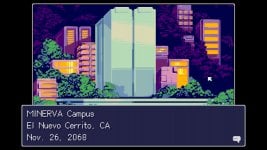
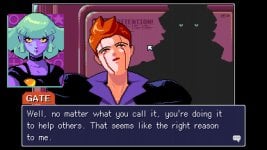
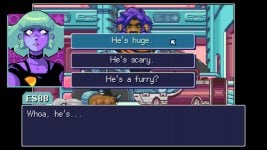
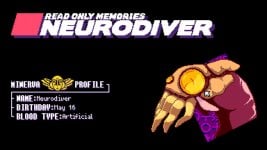
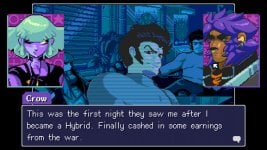
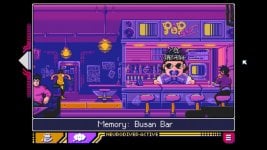
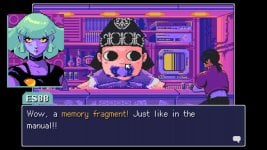
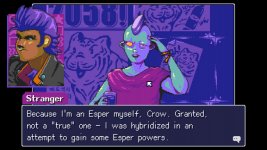
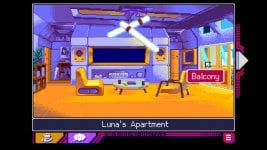
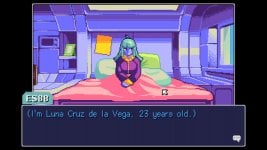
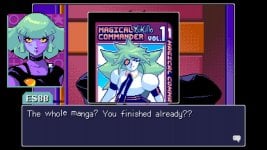
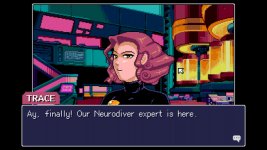

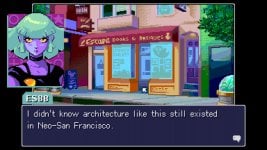
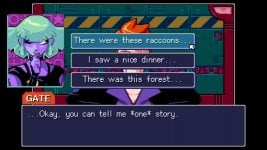
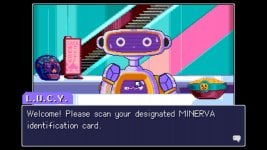
Options
View top chatters